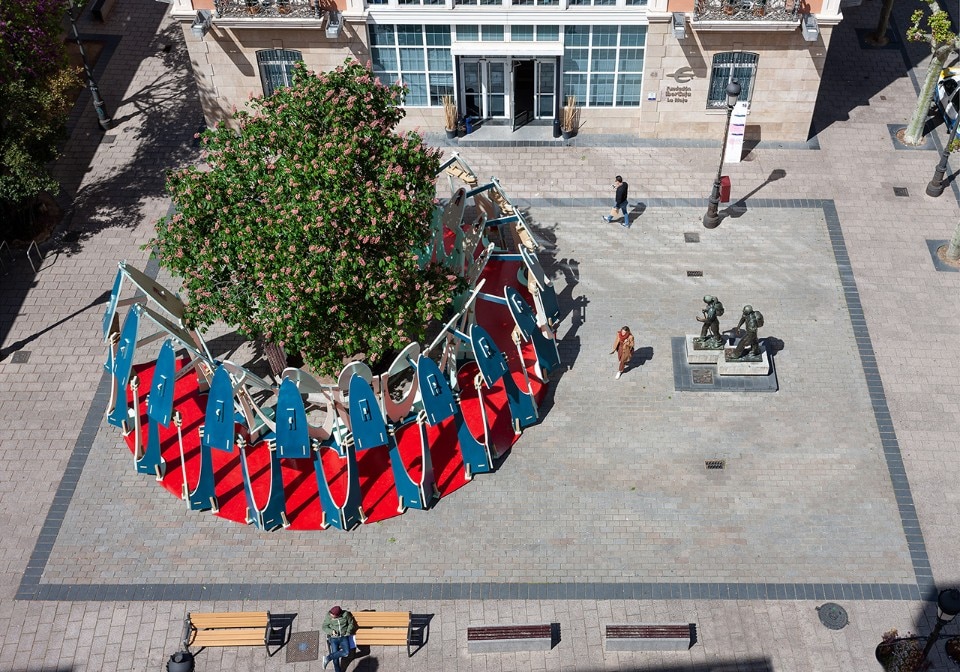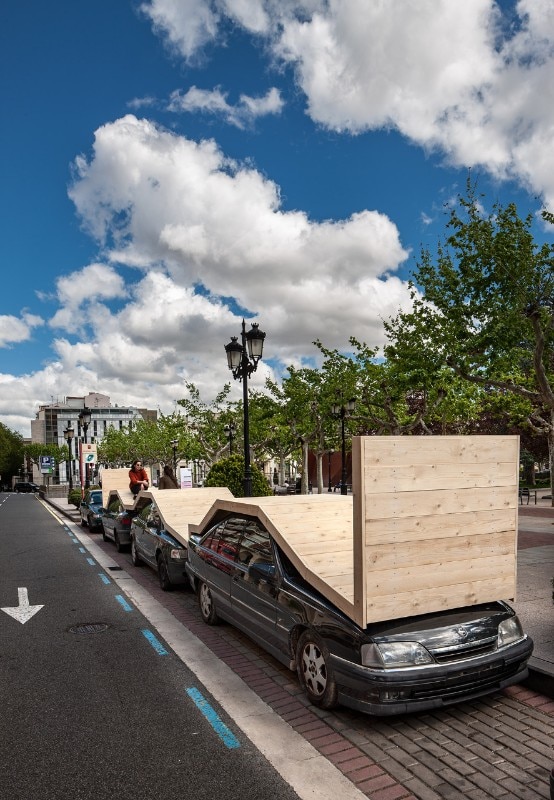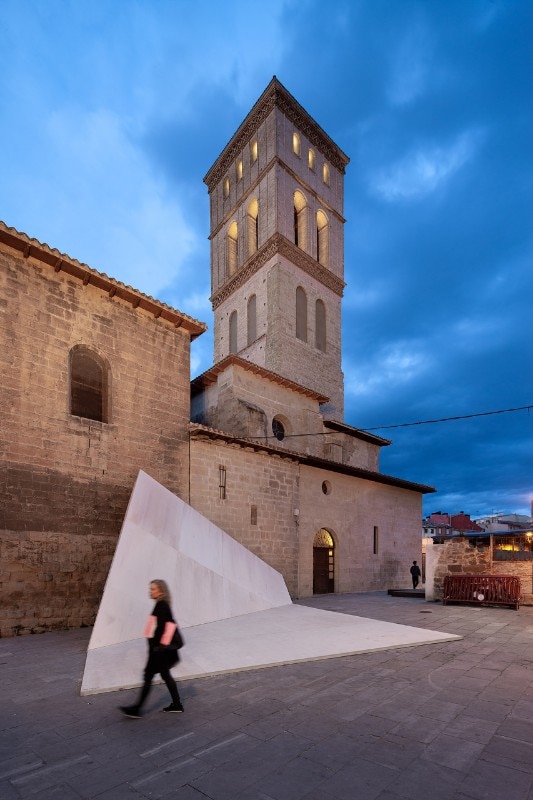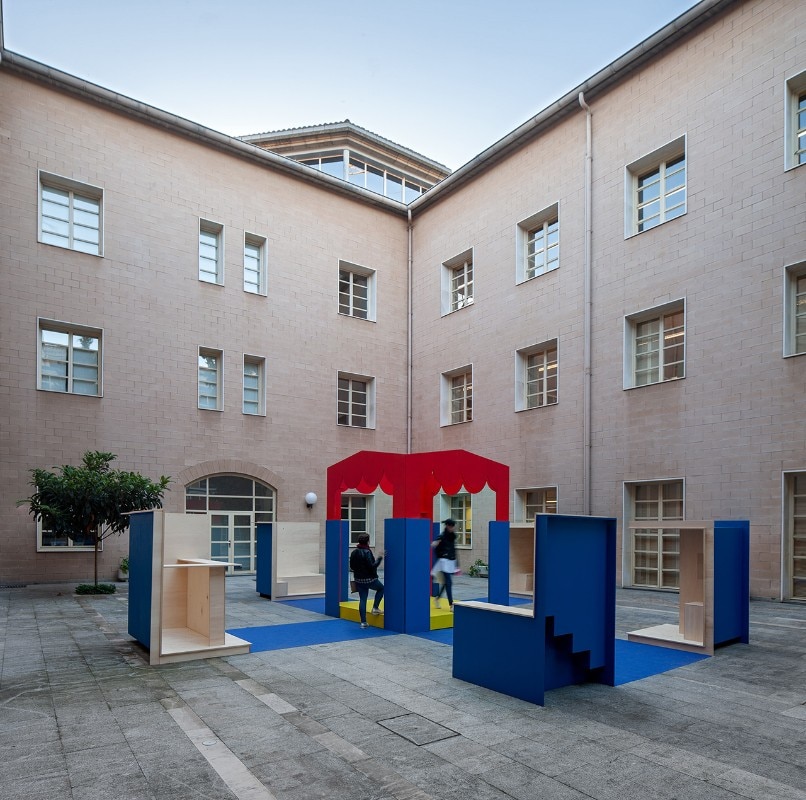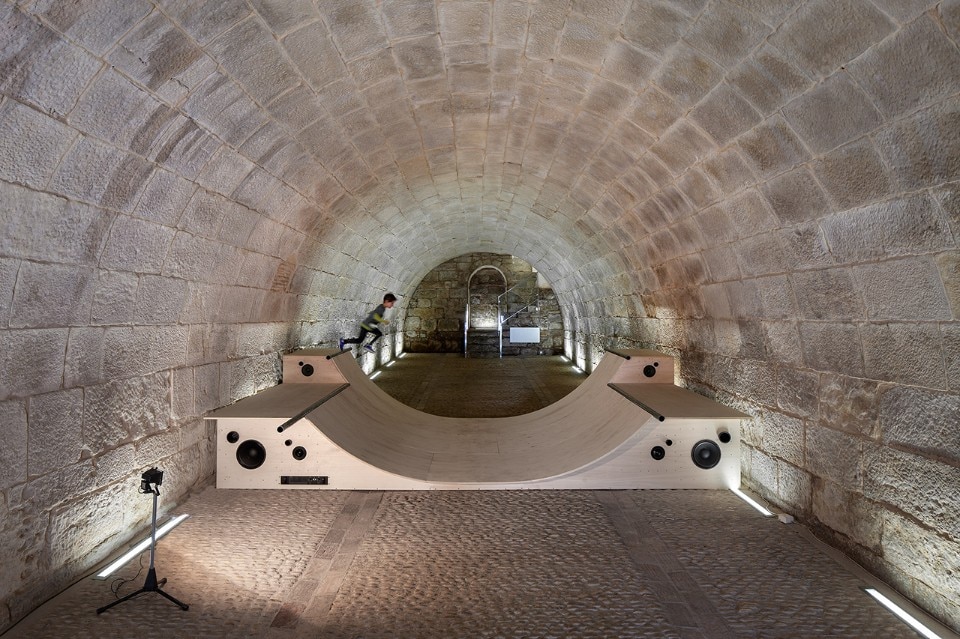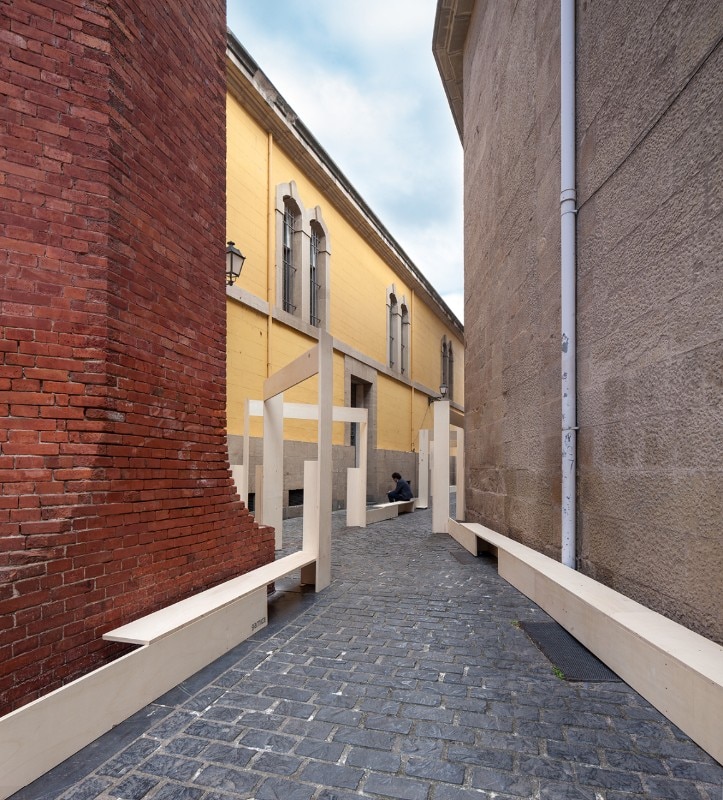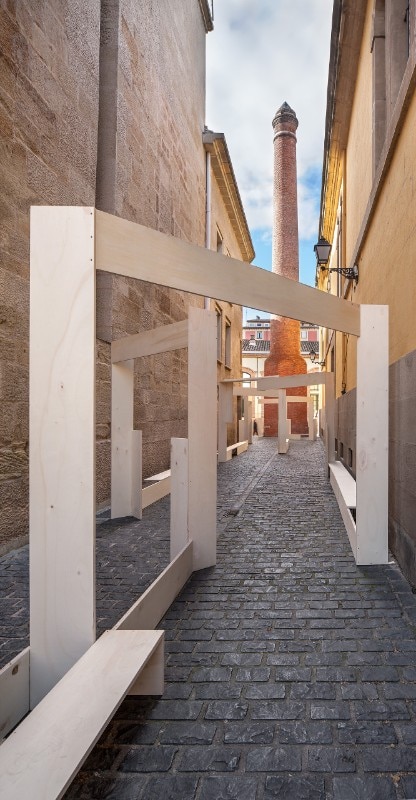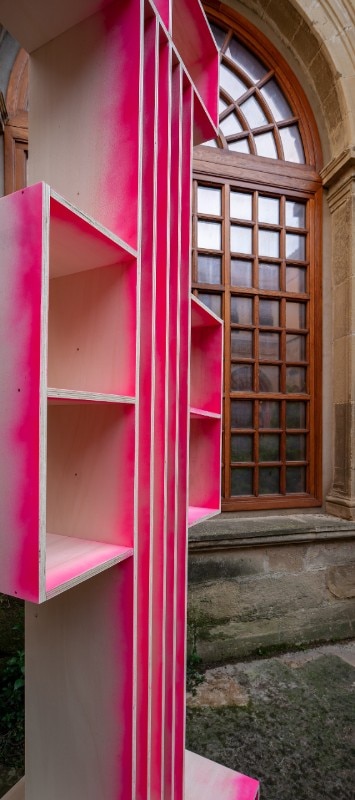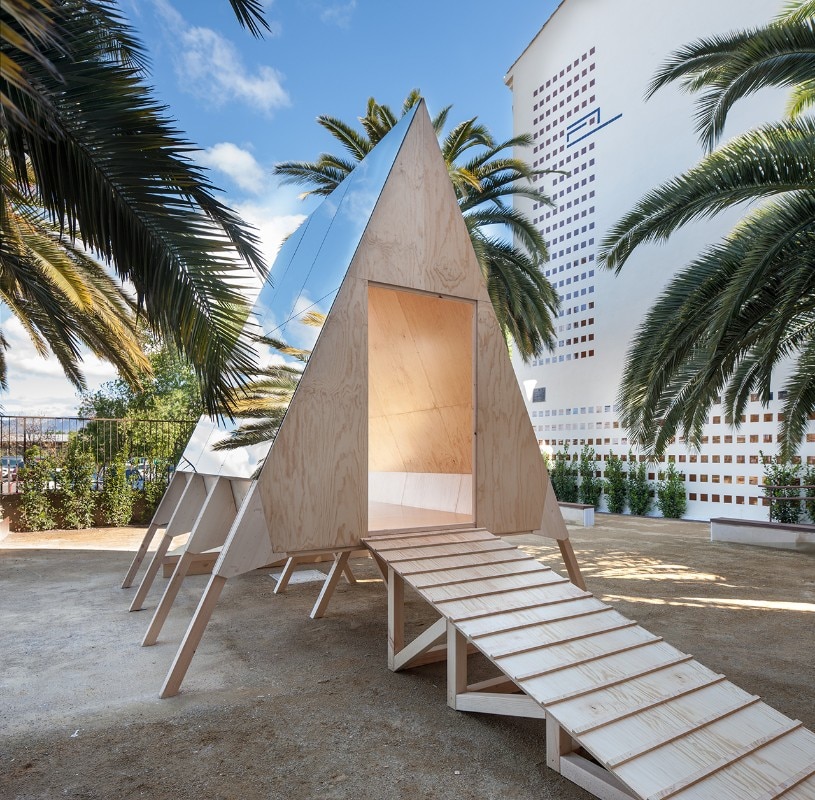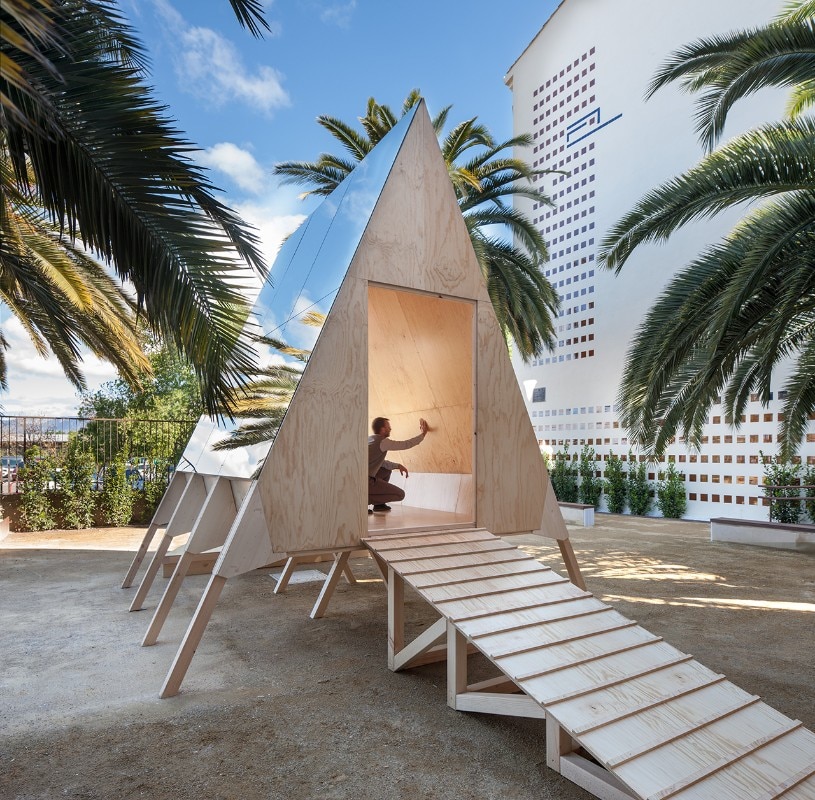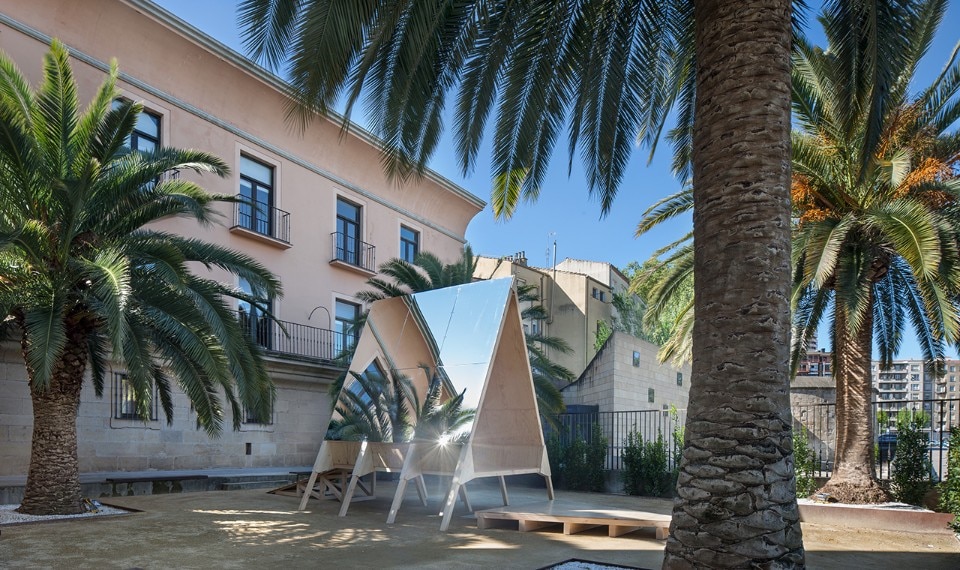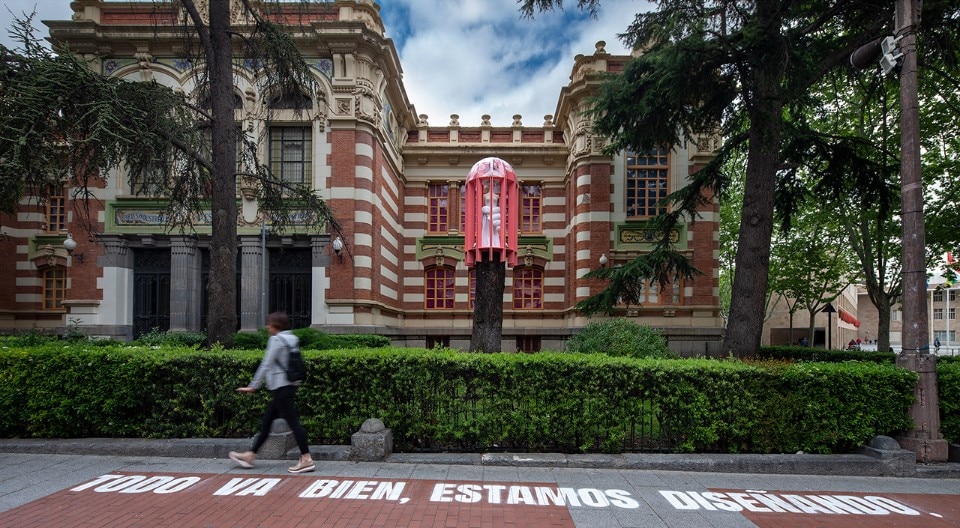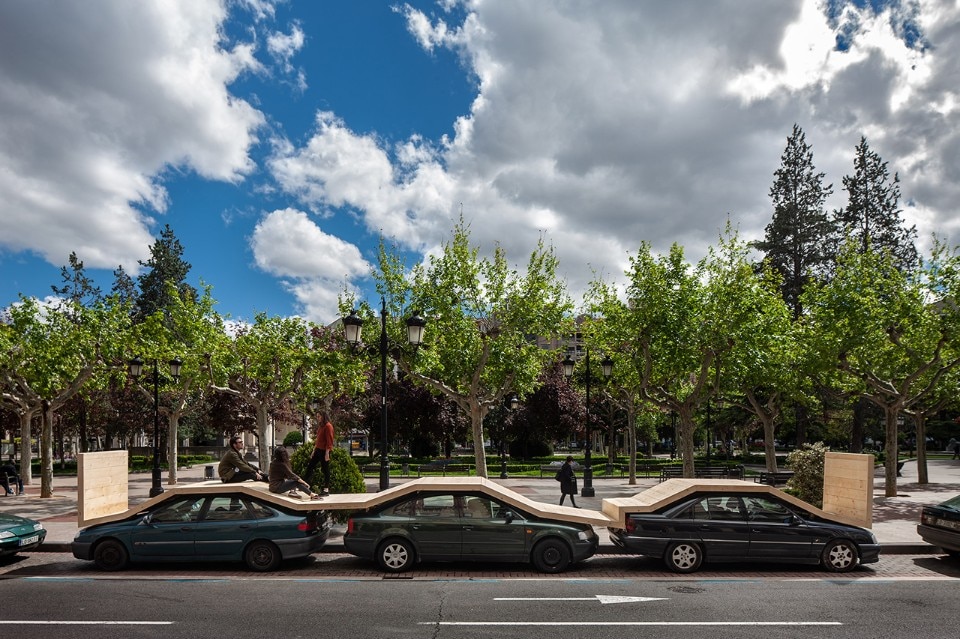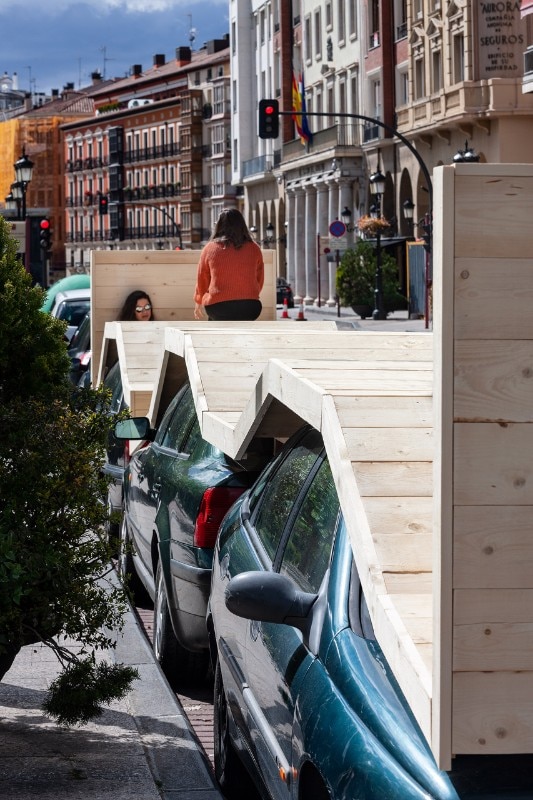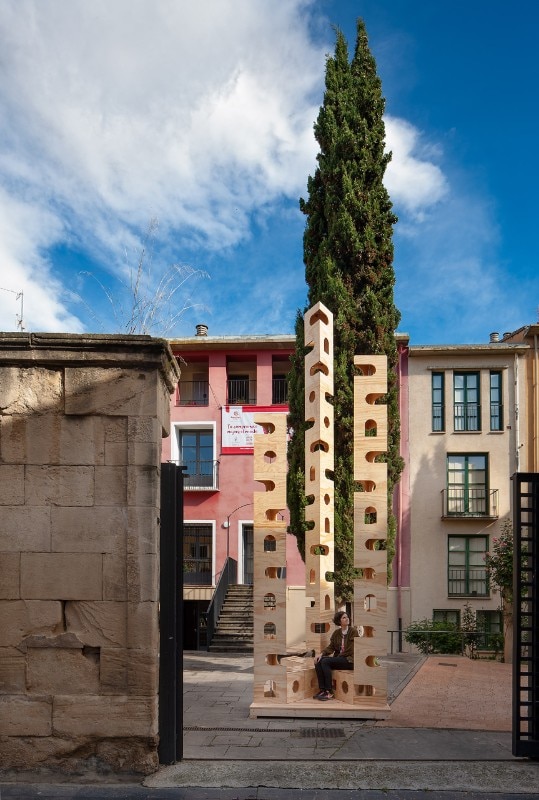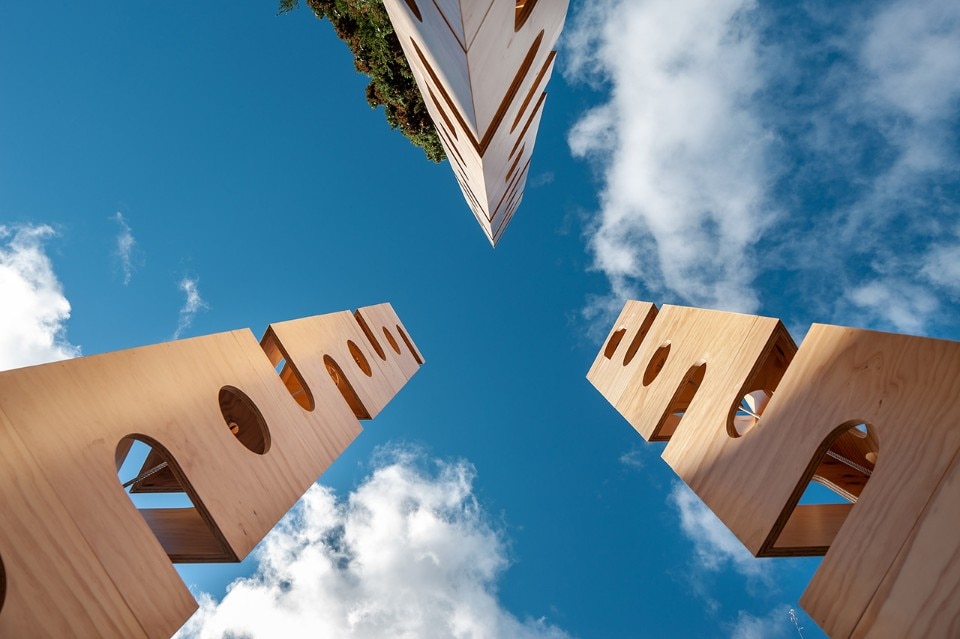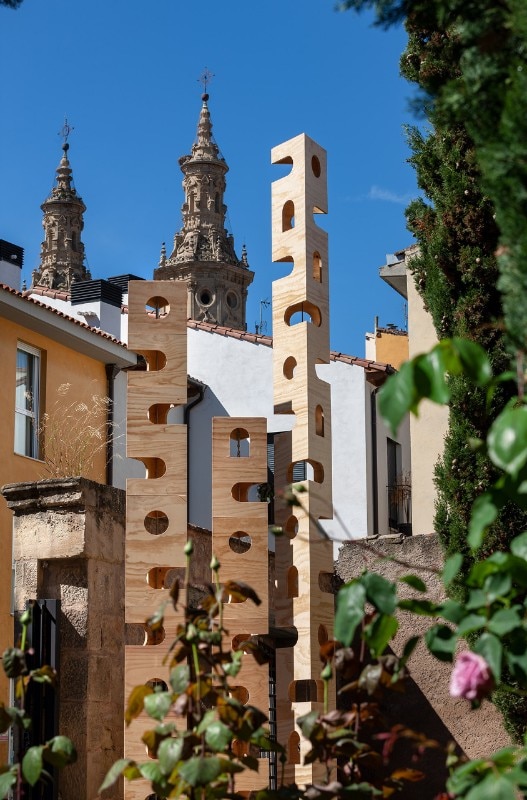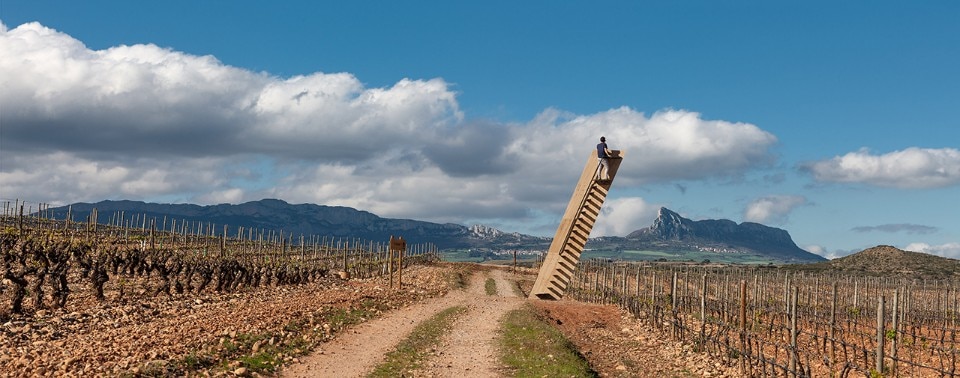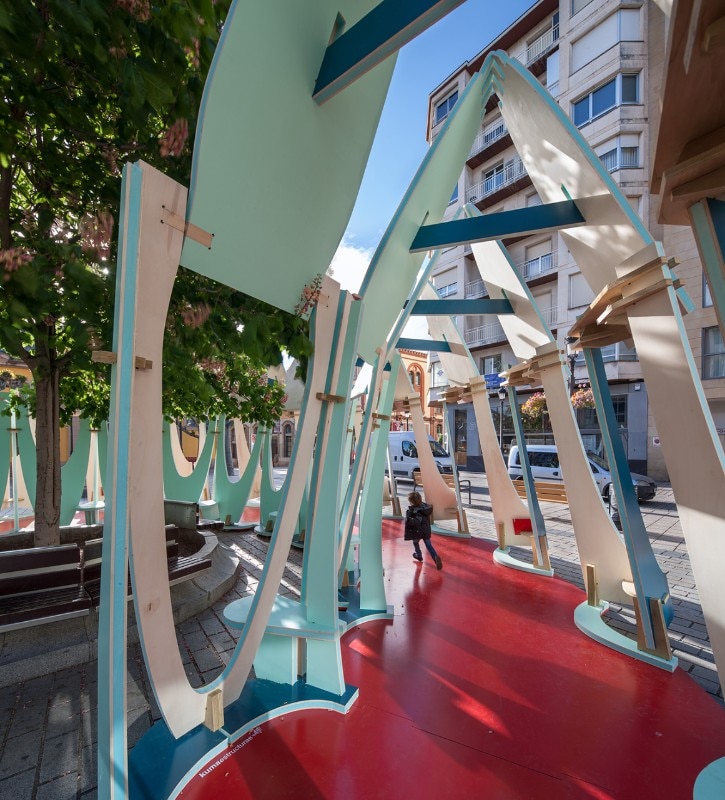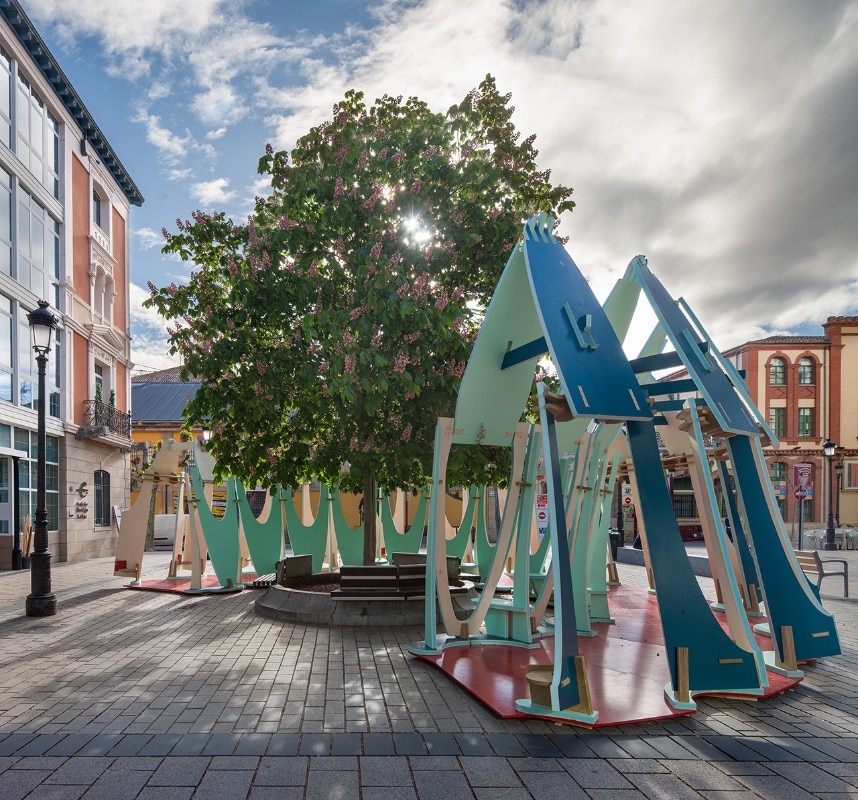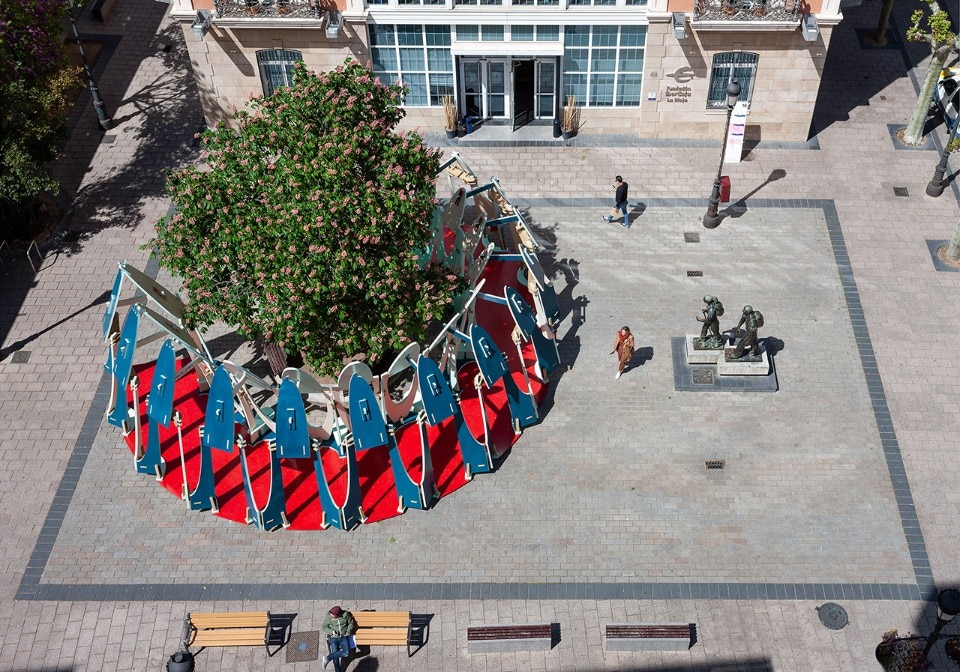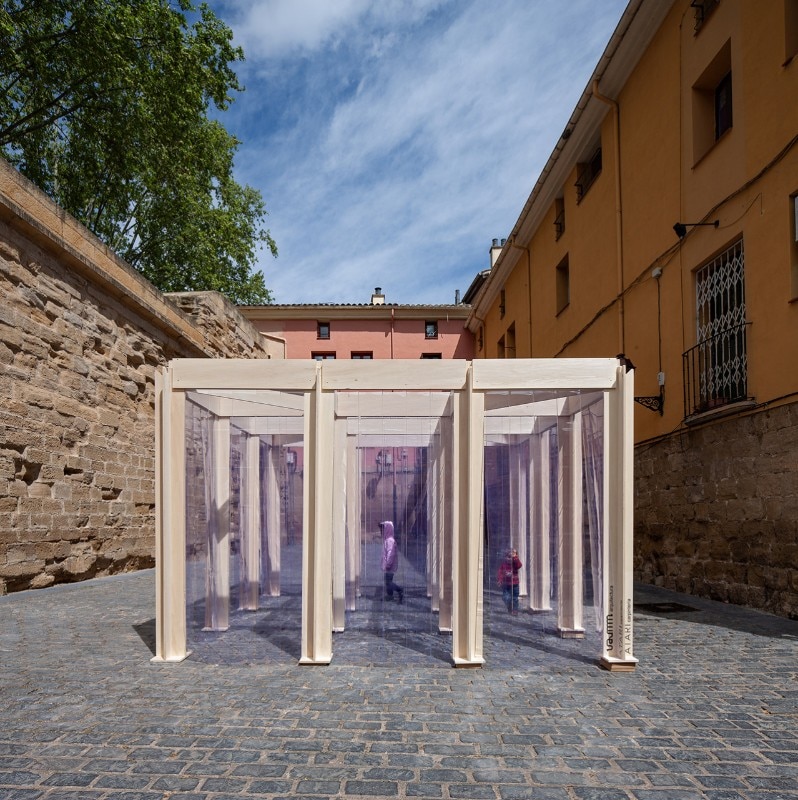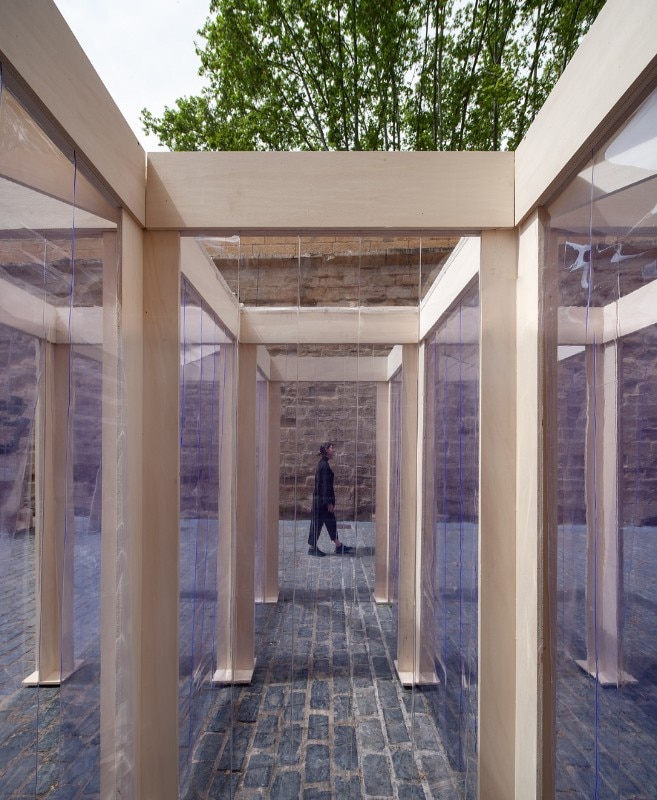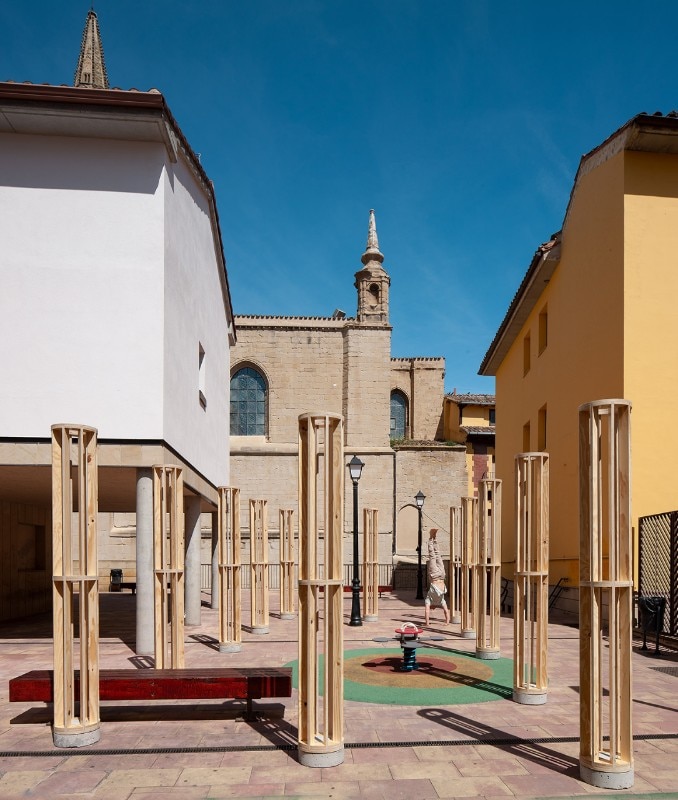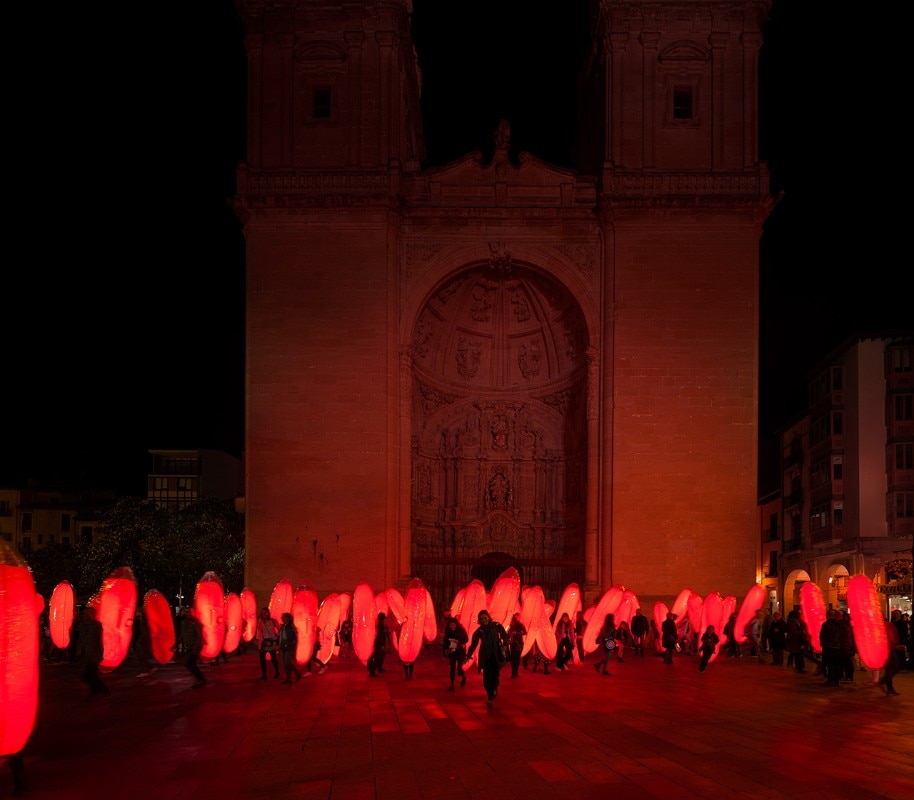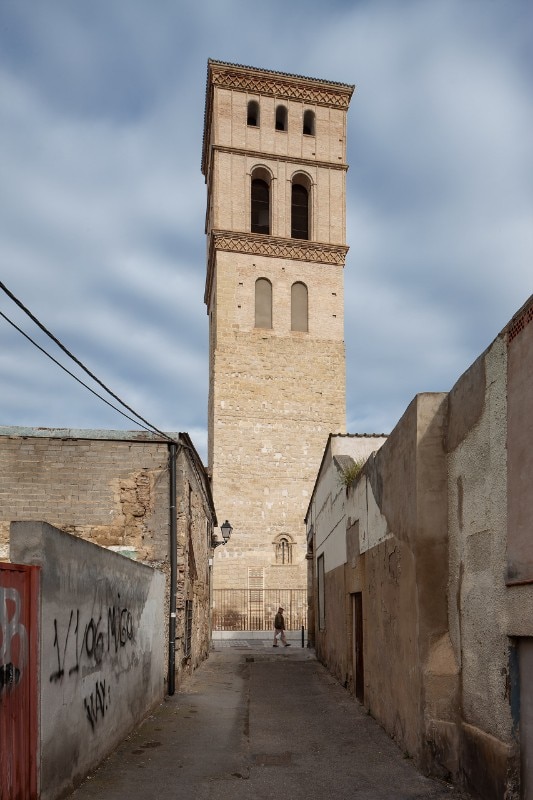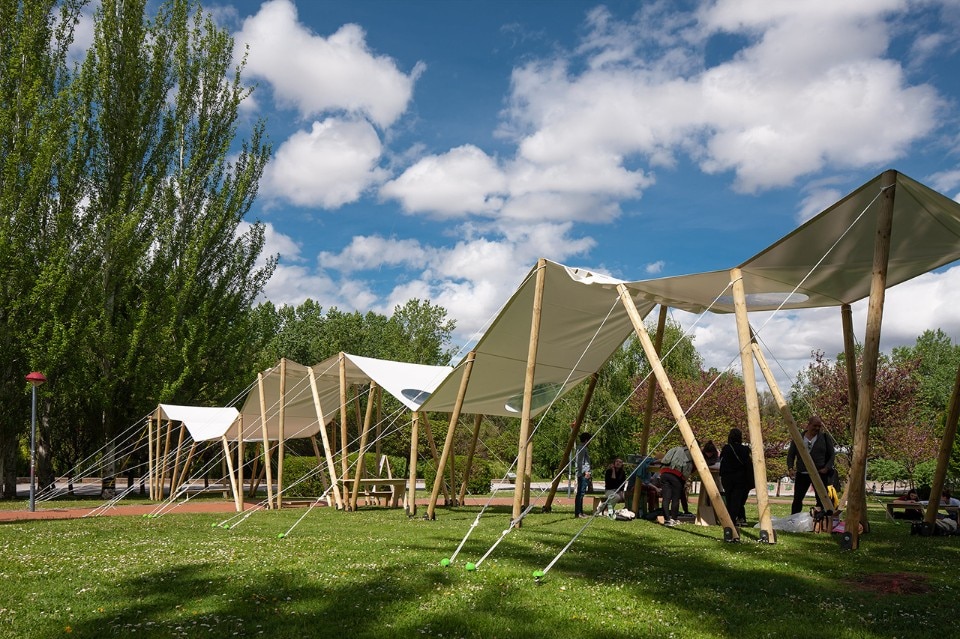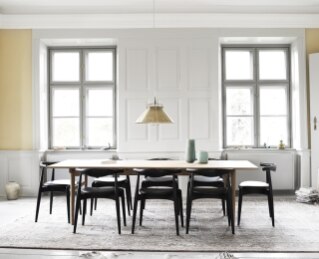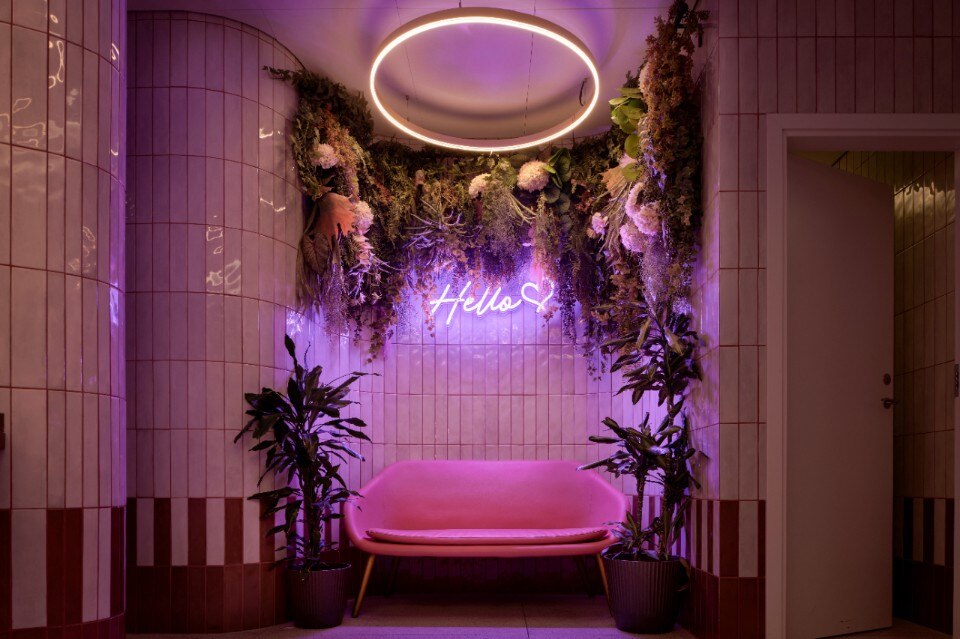
Design and ceramics renew a shopping center
FMG Fabbrica Marmi and architect Paolo Gianfrancesco, of THG Arkitektar Studio, have designed the restyling of the third floor of Reykjavik's largest shopping center. Ceramic, the central element of the project, covers floors, walls and furniture with versatile solutions and distinctive character.
- Sponsored content
With ephemeral installations, performances, debates and other events, the Concéntrico Festival animated for a week the streets of Logroño’s historic centre.
The event, that this year has reached its fifth edition, animates what is one of the main stops of the famous Camino de Santiago. Once in the city, we immediately noticed the great quality of its public spaces – in terms of design, maintenance and use.
Street, square and park design, not only in the city centre, but also in its outskirts and in non-tourist areas, define a catalogue of architectural solutions that should be the basis of any urban design student.
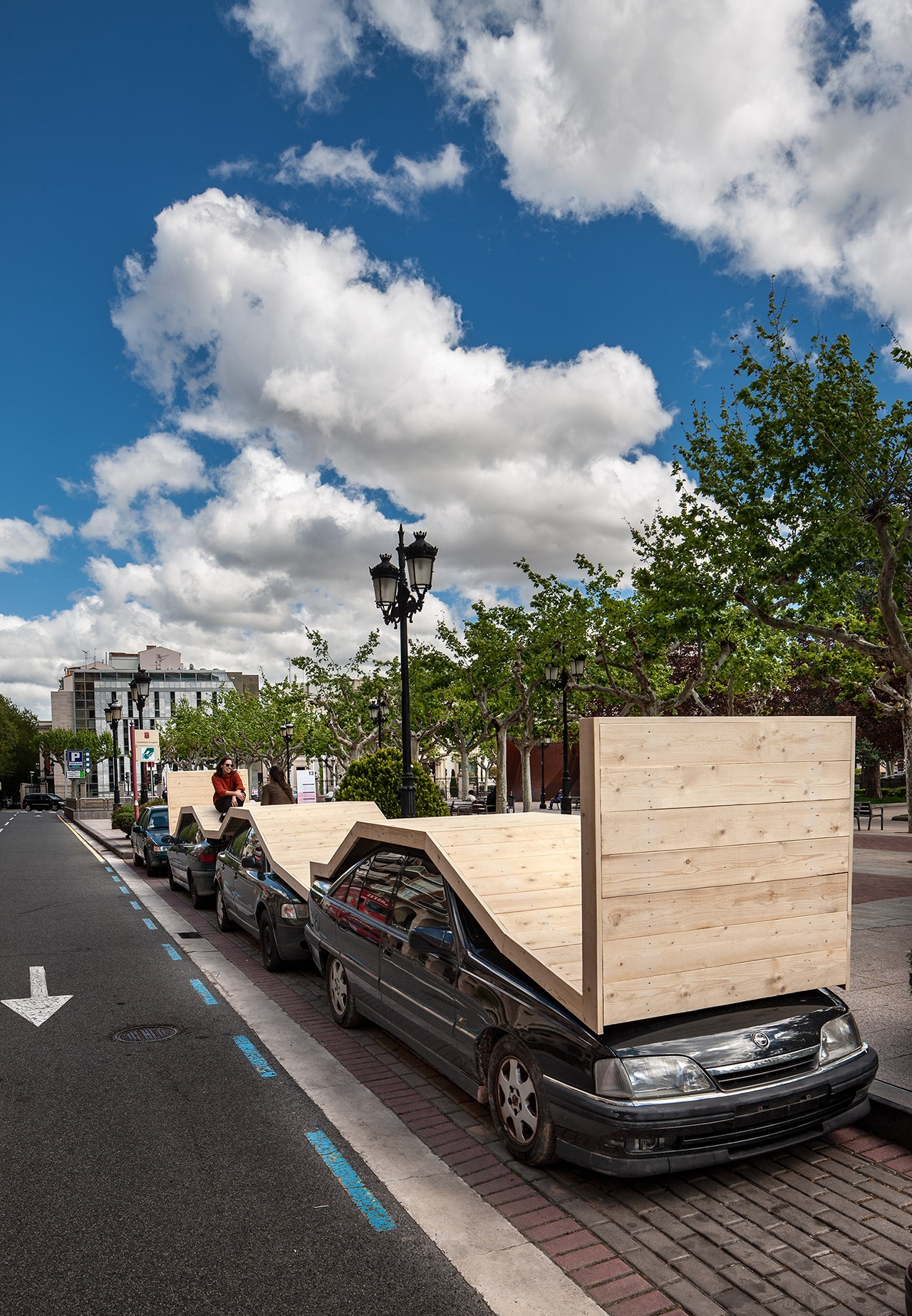
 View gallery
View gallery
We asked ourselves: what can be the meaning of a public art festival in a context where urban culture is so advanced?
Surely the ability of a small provincial city to be able to become – even for just one week a year – a relevant protagonist within the crowded contemporary architecture scene. Curator Javier Peña Ibañez and the Concéntrico team were able to generate a diverse network of local and international designers, institutions and companies, who produced 16 installation projects in the city’s public spaces.
And it is not secondary that this initiative starts from the simple will of individuals who bring to their territory the professional skills acquired in major centers, such as in this case Madrid or Barcelona.
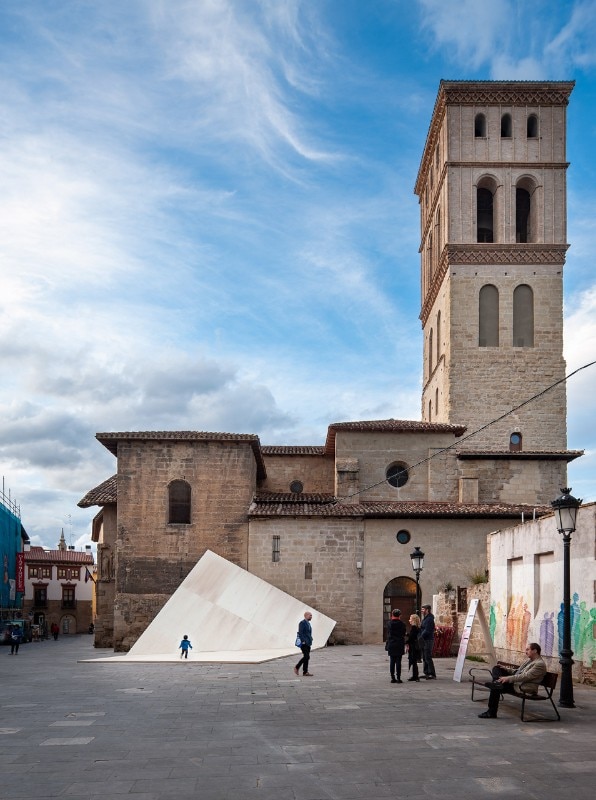
Despite its vast architectural heritage, Concéntrico is a tool for giving new attention and significance to places that often pass into the background in everyday life distraction.
As happened with Manifesta 12 in Palermo or as occurs every year for the Fuorisalone, we have a mutual relationship between contexts and new interventions, so the installations lose their meaning in themselves but become strictly site specific.
Although temporary and low budget, the projects developed for the festival show us how space and sociality are produced in contemporary times. They are able to critically look at the different areas of the city and to activate bonds of complicity and empathy between those who live in these places, giving back to the public space what is its lifeblood and should never lose: unpredictability.
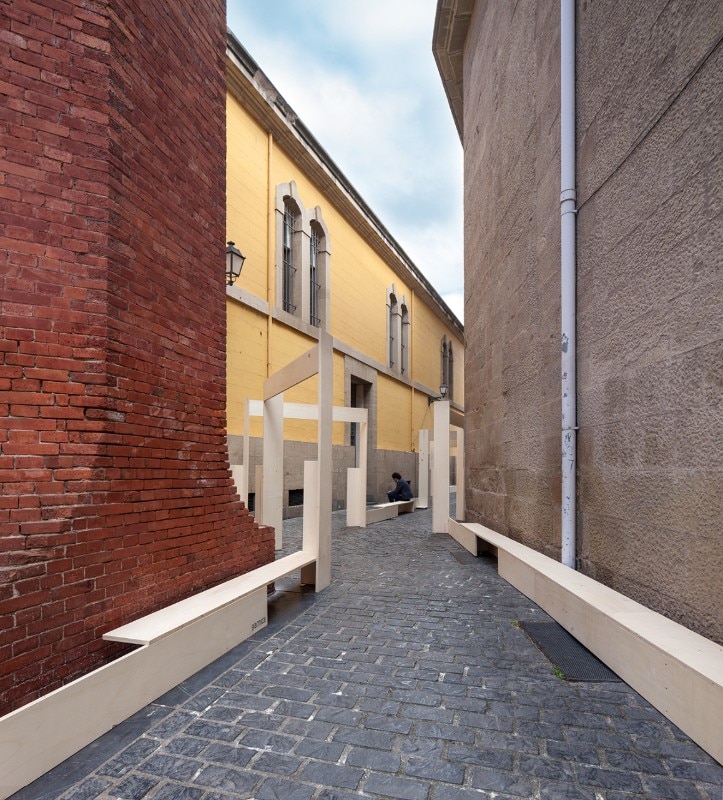
- Event:
- Concéntrico
- Curated by:
- Javier Peña Ibáñez
- Coordination:
- Irene Fernández Garijo, Elena Solozabal Torres, Cristina Sánchez Algarra
- Team:
- Sonia Moral Rodríguez, Belén Llanos Pérez, Arturo Andrés Valdemoros, Tiziana Birlain
- Designers:
- Benedetto Bufalino, París – Tools for action, Berlín – Vaumm, San Sebastián – FAHR 021.3, Oporto – Lucas Muñoz Muñoz, Eindhoven – Martin Kloda / Hana Procházková, Praga – Robin Falck, Helsinki – Parasite 2.0, Milan / Bruselas – Alfredo Baladrón, Madrid – Knitknot architecture, La Rioja – SZCZ Jakub Szczesny, Varsovia – EBBA architects, Londres – Juan Llamazares, Madrid – Gadea Burgaz / Pablo Losa, Madrid – L’Ecole Nationale Supérieure d’Architecture de Normandie, Rouen – Escuela Superior de Diseño, La Rioja

Marble matters– exploring Carrara’s legacy
Sixteen young international architects took part in two intensive training days in Carrara, organized by FUM Academy and YACademy, featuring visits to the marble quarries and a design workshop focused on the use of the material.
- Sponsored content


